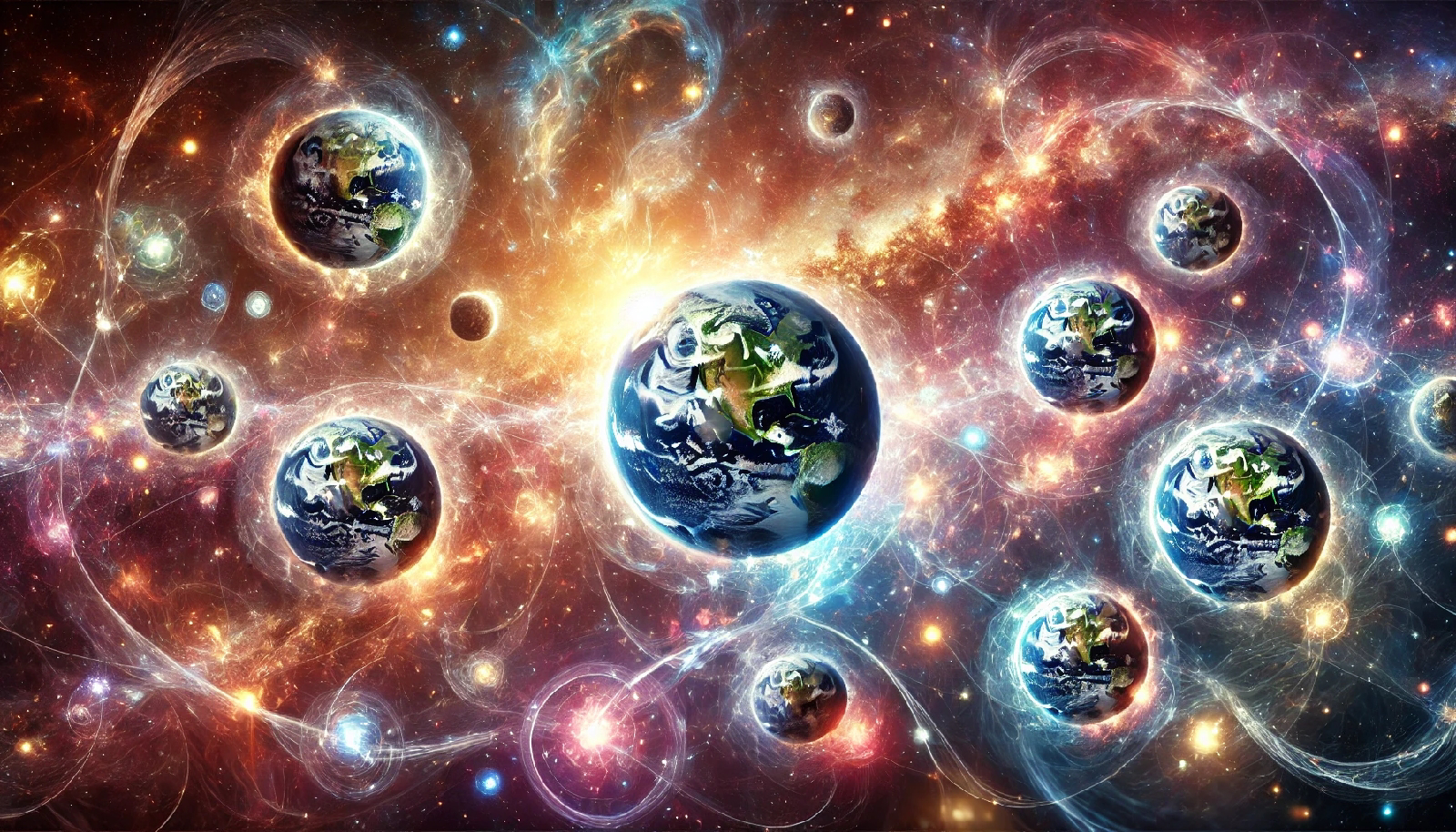Hi there, dreamers and deep thinkers! Let’s dive into a mind-bending topic that has intrigued scientists, philosophers, and storytellers alike: parallel universes. Imagine a reality where every choice you’ve ever made branches off into a new world. It’s a tantalizing concept, isn’t it? Let’s explore the science, theories, and what it all might mean for us.
What Are Parallel Universes?
Parallel universes, or the multiverse, are hypothetical realities that exist alongside our own. Each one could be vastly different, or eerily similar, with just a few subtle changes. Think of them as alternative timelines running simultaneously. It’s like having infinite versions of yourself, each living a slightly—or completely—different life.
The Science Behind the Multiverse
The idea of parallel universes isn’t just science fiction; it has roots in serious physics. Quantum mechanics suggests particles can exist in multiple states at once until observed. This phenomenon, called superposition, hints at the possibility of branching realities. If particles can do it, why not the entire universe?
Cosmology also supports the multiverse idea through inflation theory. After the Big Bang, space expanded rapidly, possibly creating bubble universes. Each bubble could follow its own unique physical laws. It’s like a cosmic lottery, and we just happen to live in a universe that supports life.
The Many-Worlds Interpretation
The many-worlds interpretation (MWI) of quantum mechanics is one of the most popular multiverse theories. It suggests that every quantum event spawns a new universe. Did you choose coffee over tea this morning? Somewhere, another version of you chose tea.
MWI erases the idea of randomness in quantum physics. Instead, every possibility plays out in its own universe. This concept can feel both exhilarating and overwhelming—just how many versions of you are out there?
Infinite Realities, Infinite You
If the multiverse exists, it means there are countless versions of you scattered across different realities. In one, you might be a famous artist; in another, a Nobel Prize-winning scientist. Somewhere, a parallel you could be living the life you’ve always dreamed of—or avoided.
This idea raises profound questions about identity. Are all these versions still “you”? Or is each one a distinct being shaped by unique circumstances? Philosophers and physicists alike grapple with these questions, and the answers remain elusive.
Fiction Meets Physics
The concept of parallel universes has captivated writers and filmmakers for decades. Think of The Matrix, where reality is an illusion, or Doctor Strange, which explores multiversal travel. These stories tap into our innate curiosity about “what if” scenarios.
What makes them so compelling is the mix of imagination and plausibility. They invite us to question our perceptions of reality. Could déjà vu, for example, be a glitch in the multiverse matrix?
The Philosophical Implications
Parallel universes challenge our understanding of existence. If infinite realities exist, does our current life hold any special significance? This can be a liberating thought—it means every decision matters and doesn’t matter at the same time.
Some argue that the multiverse could offer answers to age-old questions about free will and destiny. Are our lives preordained, or do we shape our paths? Maybe it’s both, depending on which universe you’re in.
The Spiritual Perspective
For some, the multiverse aligns with spiritual beliefs about eternal life and interconnectedness. The idea that “everything is one” resonates with multiverse theories, suggesting we are all part of a vast, infinite whole. It’s a poetic lens through which to view existence.
Others see it as a reflection of karma or reincarnation. Each universe could be a new opportunity to learn, grow, and evolve. It’s a fascinating way to merge science and spirituality into one cohesive worldview.
Are We Living in a Parallel Universe?
Here’s a thought experiment: What if this reality is the parallel one? Perhaps our “true” selves exist elsewhere, and this is just one iteration of our being. It’s a humbling and disorienting notion but worth pondering.
Some even speculate that dreams could be glimpses into alternate realities. Ever had a dream so vivid it felt real? Maybe it was—just not in this universe.
Why It Matters
The multiverse isn’t just an intellectual exercise; it has practical implications. If true, it could revolutionize our understanding of physics, consciousness, and reality itself. It might even offer solutions to seemingly unsolvable problems by exploring alternate approaches.
On a personal level, the idea can be both comforting and inspiring. It reminds us that the universe is vast, mysterious, and full of potential. In a way, it invites us to dream bigger and live more boldly.
Can We Prove It?
Here’s the kicker: proving the multiverse is notoriously difficult. By definition, other universes are separate from ours and beyond direct observation. Scientists rely on indirect evidence, like anomalies in cosmic microwave background radiation, to support their theories.
Some argue that the multiverse is unscientific because it’s untestable. But others see it as a natural extension of current physics. Either way, it’s a compelling idea that keeps pushing the boundaries of human thought.
Final Thoughts
Parallel universes challenge us to rethink what we know about reality, identity, and possibility. They remind us that the universe—or multiverse—is far stranger and more wondrous than we can imagine. Whether or not we ever prove their existence, the idea itself is a testament to human curiosity and creativity.
So, the next time you wonder, “What if?” remember this: somewhere, in some universe, it’s already happening. Stay curious!




